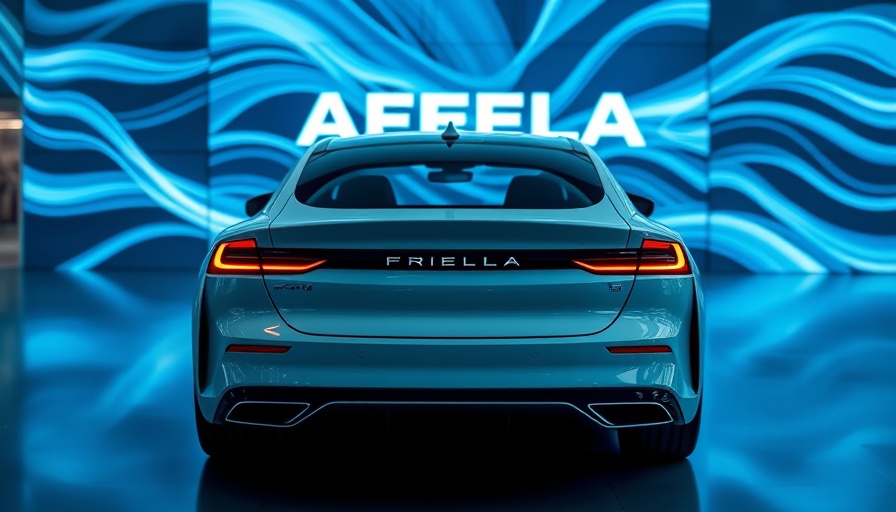
CNCDA's Cease-and-Desist to Honda: A Rampant Trend?
In a pivotal move affecting the auto industry landscape, the California New Car Dealers Association (CNCDA) has issued a cease-and-desist order against American Honda Motor Co. and Sony Honda Mobility of America. This comes amid accusations that they are infringing on state laws by pursuing direct-to-consumer sales of their Afeela brand vehicles. This situation raises critical questions about the future of dealership operations and consumer automotive sales.
Understanding California's Franchise Laws
CNCDA's president, Brian Maas, emphasized that California law prohibits automakers from bypassing their franchised dealers and competing against them directly. The core of this legal framework is designed to protect franchise rights in an increasingly competitive auto market keened by rising EV companies vying for consumer attention.
Afeela: The Vehicle in Question
The Afeela 1 sedan, a new collaborative luxury electric vehicle from Honda and Sony, is laden with promise, incorporating advanced tech features such as AI integrations and a sophisticated infotainment system. Production is set to commence later this year at Honda’s Ohio facility, with an anticipated launch in 2026, allowing it to join California's growing EV market.
Impact on Dealers and Industry Dynamics
This situation represents a broader trend wherein traditional automakers are exploring new sales models to enhance customer experience. Honda's initiative to market Afeela directly to consumers via its website, as stated by Shugo Yamaguchi, CEO of Sony Honda Mobility, represents a shift towards consumer-centric models; however, it directly opposes established dealership frameworks.
The Growing Need for Clear Guidelines
California’s legal battles aren’t isolated; Volkswagen was served a similar cease-and-desist in January over its direct sales through the Scout brand, underlining a persistent friction between emerging auto manufacturers and established dealership laws. The urgency for clear guidelines in the face of evolving sales channels cannot be overstated. The current pandemic accelerated trends towards online sales, but regulations must adapt accordingly to safeguard dealer investments and employment.
Dealer Strategies Moving Forward
As tensions rise between OEMs and dealerships, it is crucial for dealerships to craft strategies that leverage their unique positions while adapting to the changing sales landscape. Cultivating a robust online presence and prioritizing customer relations can serve as strong pillars against potential disruptions from direct sales initiatives.
Conclusion: A Call for Industry Reflection
The cease-and-desist action against Honda serves as a wake-up call for the automotive industry. It underscores the dual challenge of innovation in consumer engagement and the protection of established dealership models. Dealers are encouraged to review their strategies and remain agile in this rapidly shifting environment—adapting while ensuring compliance with legal frameworks. Ensuring that all players in this competitive market have a voice will be crucial as the automotive landscape continues to evolve.
 Add Row
Add Row  Add
Add 




Write A Comment